Bitcoin may be the world’s best-known and most-used cryptocurrency, but it has been under intense pressure of late, having forked once already just a few short weeks earlier. As expected, the currency lost quite a bit of market-cap after the fork, but more trouble may well be on the horizon for the world’s most popular cryptocurrency. According to recent reports, not only is the Bitcoin blockchain likely to see a further fork going forward, some researchers are now also claiming that Bitcoin transactions may not actually be as anonymous as many believe them to be. While it’s unlikely that any of the controversies will actually undermine Bitcoin’s standing as the world’s preeminent cryptocurrency, many are wondering if they can switch to other options for their online payments in order to maintain their privacy. That being the case, here are the top 8 Bitcoin alternative cryptocurrencies you can use:
The Best Bitcoin Alternatives Out There
1. Ethereum (ETH)
Like Bitcoin, Ethereum is an open-source, decentralized blockchain-based computing platform that is known mostly for its own cryptocurrency token called ‘Ether’. The platform enables users to create a tradeable digital token that can be used as a currency, or even a central bank that can actually issue currency. It also enables developers to build and run smart contracts and distributed applications without any outside interference. Ethereum went live only a couple years ago, but within a year of becoming operational, was hard-forked into two blockchains after the infamous attack on the DAO project, resulting in the creation of Ethereum (ETH) and Etherium Classic (ETC). With most of the original Etherium backers, including founders Vitalik Buterin and Gavin Wood, moving onto the new Ethereum (ETH) blockchain, it currently has a market-cap of over $31 billion, second only to the mighty Bitcoin, making it a leading Bitcoin alternative.

Earlier this year, the Ethereum project announced the establishment of the Enterprise Ethereum Alliance, whereby some of biggest names from the finance and tech industries, like JPMorgan Chase, Bank of New York, Mellon Corporation, Microsoft, ING, UBS, British Petroleum, Santander, Credit Suisse and Wipro, joined hands with the organization to “build and to promote the best practices and standards that facilitate adoption of the Ethereum protocol for enterprises”. Like Bitcoin, Ethereum is also a viable option for IRA investments, as investors can now hold Ethereum in retirement accounts as traditional IRAs, Roth IRAs, 401Ks and SEP IRAs.
2. Litecoin (LTC)
Litecoin is a decentralized peer-to-peer cryptocurrency that’s powered by open source software released under the MIT/X11 license in October, 2011 by former Googler, Charles Lee. It was originally inspired by Bitcoin and, has quite a few similarities with the world’s most popular cryptocurrency, but the adoption of Segregated Witness and Lightning Network has allowed Litecoin to reduce block generation times to about 2.5 minutes (compared to Bitcoin’s 10 Minutes), thereby reducing bottlenecks and facilitating payments about four times faster than Bitcoin. One of the best features about Litecoin is Wallet encryption, which allows users to secure their wallets in a way that allows them to view their account balance and prior transactions, but are required to enter a passcode to be able to actually spend their money.

Litecoin is one of the largest and most popular Bitcoin alternatives right now, given that the currency currently has a market-cap of over $2.5 billion, with its valuation hovering around the $50 mark. Like Bitcoins, users can also ‘mine’ Litecoins at home, with each block worth as many as 25 Litecoins currently, although, that number gets reduced 50% every four years. Overall, the Litecoin network is expected to produce around 84 million Litecoins, which is four times as many as that of Bitcoin. Litecoin was also the first cryptocurrency to implement the Scrypt algorithm in an attempt to end the prevalence of GPU-based mining, and although that didn’t quite happen, Scrypt-based currencies like Litecoin and Dogecoin still offer the advantage of possibly increasing the dividends and computational efficiency of mining them.
3. Dogecoin (Doge)
Dogecoin probably has the most interesting backstory of all cryptocurrencies combined. Back in December 2013, the currency was introduced as a bit of a joke by combining Bitcoin with a viral internet meme called ‘Doge’, which featured the picture of a Shiba Inu accompanied by a multicolored text in broken English, written in Comic Sans font. Like Litecoin and unlike Bitcoin, Dogecoin also uses Scrypt instead of the more traditional SHA-256 algorithm, potentially allowing “merged mining” with other compatible currencies. While some SHA-256 currencies also allow the practice, it’s relatively much less common.
Even though it started off as a joke, Dogecoin is today valued at over $197 million, and is accepted by over 200 merchants worldwide. However, with well over 110 billion coins mined already, and 5 billion more to come every year from now, the value of each individual Dogecoin is a fraction of many of its peers, hovering at around a fifth of an U.S. cent. While that is significantly lower than many of its larger and more established peers like Bitcoin and Ethereum, the platform’s already got a dedicated following, whose main objective it is to ensure that it remains a medium of exchange for the long term rather than a short-term investment.
4. Faircoin (FAIR)
Faircoin is part of the grand socially-conscious vision of a Spain-based co-operative organization called the Catalan Integral Cooperative, or the CIC. It uses the blockchain technology of Bitcoin, but with a more socially-constructive design. Unlike other cryptocurrencies on the list, Faircoin relies on neither mining or minting new coins, as they are “both competitive systems”, instead using certified validation nodes, or CDNs, to perform block generation in more ecologically responsible, equitable ways that “facilitates the development Instead of proof-of-stake or proof-of-work, Faircoin uses what it calls ‘proof-of-cooperation’ to verify all generated coins.
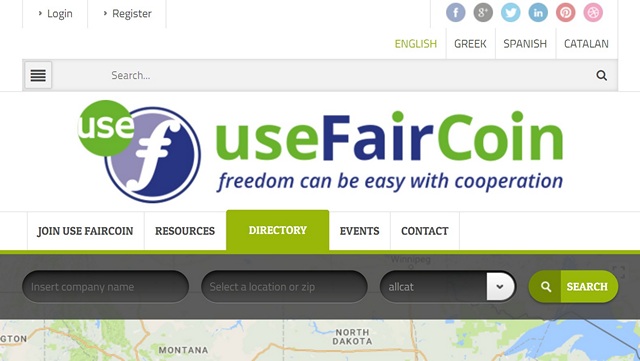
The Faircoin market-cap currently stands at $32 million, while each Faircoin is valued at about 61 cents. Overall, Faircoin is still an ideology-based experiment for the most part, but if you believe that excesses of modern capitalism needs to tackled head-on for the sake of our future generations, projects like FairCoop, and by extension, the Faircoin cryptocurrency, definitely need to be supported.
5. Dash (DASH)
Formerly known as XCoin and Darkcoin, Dash, a portmanteau of the words ‘Digital’ and ‘Cash’, is an open source, peer-to-peer cryptocurrency, much like Bitcoin. However, it promises quite a few improvements over Bitcoin with features such as ‘InstantSend’ and ‘PrivateSend’. According to the developers behind Dash, the former enables users to complete financial transactions almost instantaneously without relying on a centralized authority. As for ‘PrivateSend’, it protects the privacy of users by obscuring the origin of funds by executing several transactions at once, making it unclear whose coins are going to who. According to Dash’s official website, the currency uses a “2-tier architecture” to power its network. The first tier consists of “miners who secure the network and write transactions to the blockchain”, while the second tier includes the “masternodes which enable the advanced features of Dash”.
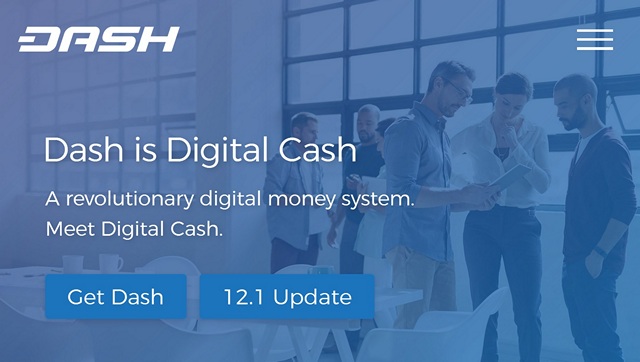
Unlike Bitcoin, which uses SHA-256 hashing algorithm, Dash uses a relatively uncommon one called ‘X11’ that is compatible with less powerful hardware, allowing more people to actually mine their own currency. X11 is also supremely energy efficient, consuming about 30% less power than Scrypt. While it is one of the most highly-valued, secure cryptocurrencies you can use today, it’s unfortunately not as widely supported as Bitcoin. In terms of market-cap, it is currently valued at over $2.3 billion, with individual Dashes worth about $312 apiece.
6. Peercoin (PPC)
Peercoin is based on the Bitcoin protocol and shares much of its source code, but instead of relying solely on the proof-of-work system to verify mined coins, it implements a proof-of-stake system that gives an advantage to miners who already have more coins to begin with. Another important distinction between Peercoin and Bitcoin is the fact that the former doesn’t have a hard cap on the number of possible coins, but is designed to “eventually attain an annual inflation rate of 1%”. As its name suggests, Peercoin is also a peer-to-peer cryptocurrency like Bitcoin, with its source code released under the MIT/X11 software license.
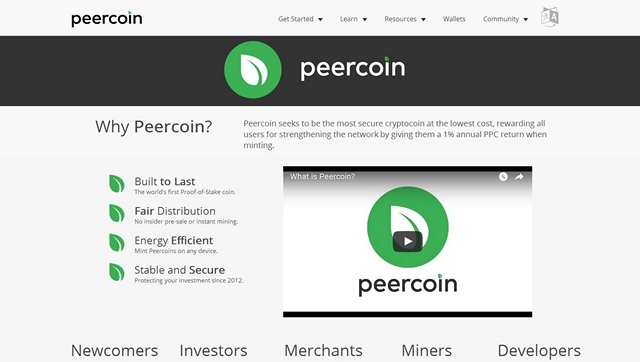
The overall market-cap of Peercoin is over $50 million, with each individual unit worth just a shade over $2. Peercoin uses the SHA-256 algorithm like Bitcoin, but because it uses the proof-of-stake method of generating coins, it is much more energy efficient than its more popular competitor. It only requires the energy to run the client software on PCs, as opposed to running resource-intensive cryptographic hashing functions. Overall, it’s a great alternative to Bitcoin, although, it is yet to gain the same level of acceptance as a mode of payment.
7. Ripple (XRP)
Released in 2012 and based upon a distributed open source protocol, Ripple is a real-time gross settlement system (RTGS) that actually has its own cryptocurrency called Ripples (XRP). It is one of the most well-known and largest cryptocurrencies with an overall market cap nearing $10 billion. On its website, Ripple says it enables “secure, instant and nearly free global financial transactions of any size with no chargebacks”. Like Bitcoin and basically every other entry on our list today, Ripple also is decentralized, and counts the MIT (Massachusetts Institute of Technology) among its validators, with mainstream financial organizations, like UniCredit, UBS and Santander among its users.
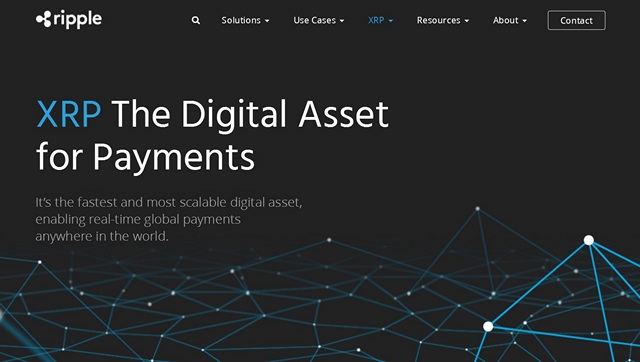
Unlike Bitcoin or most of the other alt coins on our list today, Ripple uses a unique consensus system to verify transactions rather than using either the proof-of-work system used by Bitcoin or the proof-of-stake system employed by Peercoin. The biggest feature of Ripple is that is does not differentiate or distinguish between fiat currencies and cryptocurrencies or even specialized currencies, like air miles and reward points. As of August 25th, 2017, the overall market-cap of XRP stands at $8.5 billion, while individual units are worth about 22 cents.
8. Monero (XMR)
Originally launched as a fork of Bytecoin in 2014, Monero (formerly BitMonero) is yet another open-source cyptocurrency that has already gained a steady following since its release. It is a proof-of-work cryptocurrency that works on Windows, Mac, Linux, Android, and FreeBSD. Monero isn’t actually based on the Bitcoin protocol, unlike most of the cryptocurrencies on our list today, but on the CryptoNote protocol, which has major algorithmic differences with Bitcoin in terms of its obfuscation. Like Bitcoin, however, Monero also focuses on privacy and decentralization, but unlike the world’s most popular cryptocurrency, it also allows scalablity by not having any hard-coded block size limit. To prevent excessive increases in block sizes, a block reward/penalty mechanism is built into the protocol itself.

One crucial difference between Bitcoin and Monero is that while Bitcoin mining requires high-end GPUs, the CryptoNight algorithm used by Monero is designed to be used by regular, consumer-level CPUs. As of Friday, August 25th, the total market-cap of Money is around the $1.5 billion mark, with each coin valued at over $98. Monero developers are working on a lot of projects currently, including ‘RingCT’, which is based on Greg Maxwell’s work on confidential transactions in Bitcoin and, would be a way to hide or obscure transaction amounts in Monero.
Bonus: Bitcoin Cash (BCH/BCC)
Bitcoin Cash is the result of a hard fork of the Bitcoin blockchain, undertaken earlier this month by a bunch of disgruntled Bitcoin programmers and users from around the world. The very first block was mined by a Beijing-based group called ViaBTC on August 1st and, contained 6,985 transactions with a total block size of 1.915MB, which is nearly double the limit imposed by the original Bitcoin chain. Over the past three weeks, the world’s newest cryptocurrency has gone from strength to strength, with a total market-cap that now stands at over $10 billion. Each Bitcoin Cash token is worth about $650 as of press-time, although, both those figures represent a decline of over 30% from their all-time highs last week.
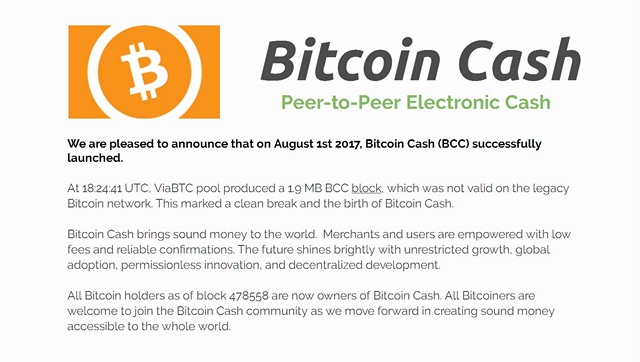
Being a fork of Bitcoin, you’d expect many of the features of Bitcoin Cash to be similar to that of the parent currency, and they are, but there are also some significant differences. First off, while block sizes on the Bitcoin blockchain are restricted to just the 1MB, each block on the Bitcoin Cash blockchain can have up to 8MB of data, which, according to the developers behind the fork, will remove the artificially-created bottlenecks, thereby improving transaction times. The new currency is also expected to reduce average fee costs going forward.
SEE ALSO: What is Bitcoin Cash and How Does it Differ From Bitcoin?
The Best Bitcoin Alternatives You Can Use
Bitcoin maybe the first name that comes to your mind when thinking of cryptocurrencies, but it certainly isn’t the only option you have today. There are literally hundreds of “alt coins” available out there, although, some, like the ones mentioned above, are much better bets than others in terms of security, efficacy and anonymity. So now that you know about some of the Bitcoin alternatives available on the internet, which one do you think will be a god fit for you? Or do you see yourself sticking with Bitcoin for the time being? Or do you already use a different cryptocurrency that we overlooked for out list today? Do leave your thoughts in the comment section below, because we love hearing from you.



















This captivating blog post on Bitcoin alternatives and cryptocurrencies has sparked my curiosity and enthusiasm, prompting me to explore the possibilities of a blockchain developer course to better understand the diverse world of digital assets.